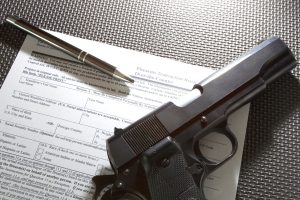If you’ve been charged with a crime in Fort Lauderdale, you’ll likely hear the term “plea bargain” early and often. Prosecutors may offer one. Your criminal defense attorney will discuss whether you should accept it. Friends or family might advise you to “just take the deal.” But what exactly is a plea bargain, and how do you know if accepting one is the right decision for your case?
As a longtime Fort Lauderdale criminal defense lawyer, I’ve negotiated hundreds of plea agreements over the years. Understanding how plea bargains work, why they’re so prevalent in our criminal justice system, and when they serve your interests (versus when they don’t) is crucial to making an informed decision about your future.
What Is a Plea Bargain?
A plea bargain—also called a plea agreement or plea deal—is a negotiated agreement between the defendant and the prosecutor in which the defendant agrees to plead guilty or no contest to criminal charges in exchange for some form of concession from the state.
These concessions typically take one of several forms:
- Charge Bargaining: The prosecutor agrees to reduce the charges to something less serious. For example, a felony battery charge might be reduced to misdemeanor battery, or a DUI might be reduced to reckless driving.
- Sentence Bargaining: The defendant pleads guilty to the original charge, but the prosecutor agrees to recommend a specific, more lenient sentence to the judge. This might include reduced jail time, probation instead of incarceration, or participation in a diversion program.
- Count Bargaining: When a defendant faces multiple charges, the prosecutor agrees to dismiss some counts in exchange for a guilty plea to others.
Under Florida Rule of Criminal Procedure 3.171, plea agreements must be disclosed in open court, and the judge must determine that the plea is entered voluntarily and intelligently. The judge isn’t bound by the sentencing recommendations in the plea agreement, though most judges will follow them unless there are compelling reasons not to.
It’s important to understand that when you enter a plea bargain, you’re waiving significant constitutional rights, including:
- Your right to a trial by jury
- Your right to confront witnesses against you
- Your right to remain silent
- Your right to require the state to prove your guilt beyond a reasonable doubt
This is why the decision to accept a plea bargain should never be taken lightly or made without fully understanding what you’re giving up and what you’re getting in return.
Why Are Plea Bargains So Common in Florida?
If you look at the statistics, the prevalence of plea bargains is staggering. Approximately 90-95% of criminal cases in Florida—and across the United States—are resolved through plea agreements rather than trials. This isn’t an accident. There are systemic reasons why plea bargains dominate our criminal justice system.
Court Resources Are Limited
The reality is that our criminal justice system would collapse if every case went to trial. Courts, prosecutors, and public defenders are managing enormous caseloads. In Broward County alone, tens of thousands of criminal cases are filed each year. If even a fraction of these cases proceeded to trial, the court system would grind to a halt.
Trials require significant time and resources. What might take thirty minutes to resolve with a plea agreement could require days or weeks of trial time, including jury selection, witness testimony, legal arguments, and deliberations. From a practical standpoint, the system depends on plea bargains to function.
Both Sides Face Uncertainty
Trials are inherently unpredictable. No matter how strong the prosecution’s case appears, there’s always a chance a jury will acquit. No matter how compelling your defense, there’s always a risk of conviction. A plea bargain removes this uncertainty for both parties, and gives both sides a measure of control over the outcome.
For prosecutors, a plea agreement guarantees a conviction without the risk of acquittal. For defendants, it typically provides a more predictable and often more lenient outcome than what they might face if they take their chances and end up convicted at trial.
Prosecutors Have Charging Discretion
Florida law gives prosecutors broad discretion in how they charge cases. Under Florida Statute § 27.02, the state attorney has the authority to determine what charges to file, what charges to pursue, and what plea offers to make. This discretion is a powerful tool that drives the plea bargaining process.
Prosecutors know they can charge aggressively and then offer reductions as an incentive to plead. They can file multiple counts arising from the same incident and offer to dismiss some in exchange for a guilty plea. This leverage is built into the system.
How Plea Bargains Can Benefit Criminal Defendants
For many Broward County criminal case defendants, accepting a well-negotiated plea bargain is the best possible outcome. Here’s why:
Reduced Charges and Penalties
The most obvious benefit is the potential for reduced charges and lighter sentences. A felony conviction carries far more severe consequences than a misdemeanor—longer potential prison sentences, the loss of civil rights (including voting and firearm possession), and a greater stigma that can affect employment and housing for years to come.
Consider a defendant charged with felony aggravated assault. Through plea negotiations, their attorney might get the charge reduced to misdemeanor simple assault. Instead of facing up to five years in prison and a permanent felony record, the defendant might receive probation and maintain a cleaner record. That’s a life-changing difference.
Certainty and Control
When you accept a plea bargain, you know exactly what you’re getting. You know what you’re pleading to, what the sentence will be (or what the prosecutor will recommend), and what conditions you’ll need to satisfy. This certainty can be invaluable, particularly when you’re facing serious charges with substantial prison time.
Trials, by contrast, are unpredictable. Juries can be swayed by factors that have nothing to do with the evidence. Judges have discretion in sentencing. A plea bargain lets you take control of your outcome rather than leaving it in the hands of twelve strangers.
Avoiding Mandatory Minimums
Florida has numerous mandatory minimum sentencing laws, particularly for offenses involving firearms, drug trafficking, and certain violent crimes. These mandatory minimums tie the judge’s hands—even if the judge wants to show leniency, they legally cannot sentence below the minimum.
Through plea negotiations, an experienced attorney can sometimes get charges reduced to offenses without mandatory minimums, giving the judge discretion to impose a more reasonable sentence based on your individual circumstances.
Saving Time and Money
Trials are expensive. If you’re paying for a private attorney, trial preparation and courtroom time can cost thousands or tens of thousands of dollars. Even with a public defender, the process consumes months of your life, including multiple court appearances, depositions, and the stress of an uncertain outcome.
A plea bargain resolves your case more quickly and with less financial burden, allowing you to move forward with your life sooner.
Reducing Collateral Consequences
Beyond the direct criminal penalties, convictions carry collateral consequences—effects on employment, professional licenses, immigration status, child custody, housing, and more. A reduced charge through a plea bargain can minimize these collateral consequences significantly.
For example, certain crimes involve “moral turpitude” that can trigger deportation for non-citizens. An attorney familiar with immigration consequences might negotiate a plea to a charge that doesn’t implicate immigration law, protecting your ability to remain in the country.
Access to Diversion Programs
Many plea agreements involve diversion programs—alternatives to traditional prosecution that allow you to avoid a conviction altogether if you successfully complete certain requirements. In Broward County, we have drug court, mental health court, veterans court, and various pretrial diversion programs.
These programs typically require you to enter a plea agreement, complete treatment or community service, and stay out of trouble for a specified period. If you succeed, the charges are dismissed. This is often the best possible outcome—avoiding conviction entirely while addressing underlying issues like substance abuse.
When a Plea Bargain Might NOT Be the Best Choice
Despite their prevalence, plea bargains aren’t always the right answer. There are situations where rejecting a plea offer and going to trial is the better strategic decision. A skilled criminal defense lawyer can help you identify when walking away from a plea deal is actually the smartest move. This can can include:
When You’re Actually Innocent
This might seem obvious, but it’s worth stating clearly: if you didn’t commit the crime and the evidence is weak, you shouldn’t plead guilty just to avoid the stress of trial. I’ve seen cases where the prosecution’s evidence is so thin that they really have no chance of conviction. In those cases, we take it to trial.
The problem is that innocent people sometimes accept plea deals out of fear or pressure. They’re told that if they lose at trial, they’ll face much harsher penalties. This creates enormous pressure to accept guilt for something they didn’t do. (This is not to say innocent people might sometimes be better served with a plea deal.) It really just depends. An experienced criminal defense attorney can help you objectively assess the strength of the prosecution’s case and whether you have a realistic chance of charge dismissal or acquittal.
 Fort Lauderdale Criminal Attorney Blog
Fort Lauderdale Criminal Attorney Blog














